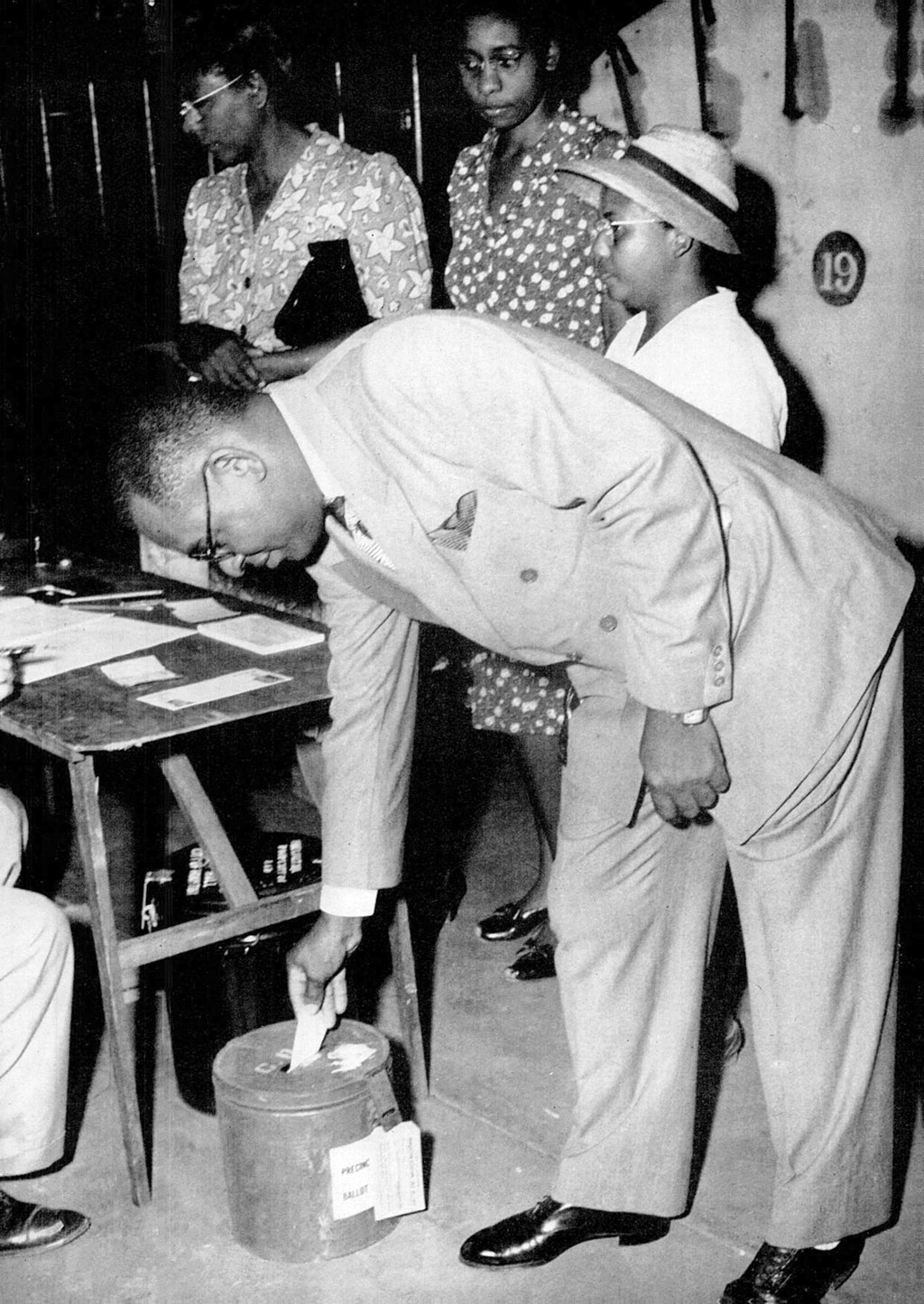Key Cases

Houston dentist Lonnie E. Smith casts his ballot in the 1944 Texas Democratic primary election (July 22, 1944) Found at: Wikipedia
Essential Question:
Case # 2 – Smith v. Allwright (1944)
After the Civil War, three amendments were added to the U.S. Constitution. They were called the Reconstruction Amendments. The purpose of these amendments was to bring change, fairness, and equality to the lives of formerly enslaved people.
- The 13th Amendment ended slavery across the United States
- The 14th Amendment granted equal civil and legal rights to anyone born in the United States.
- The 15th Amendment gave African American men the right to vote.
The Southern states responded to the new amendments by finding ways to stop Black Americans from using their rights. This was especially true about their right to vote.
In the South, the political party with the most power was the Democratic Party. The Texas Democratic Party only allowed White people to vote in primary elections. This rule was known as the all-White primaries. It meant African Americans could not use their right to vote or choose the leaders who represented them.
In 1940, Dr. Lonnie E. Smith wanted to vote in the Texas Democratic Party primary election. He was turned away because he was Black. Dr. Smith knew this was unfair. With support from Thurgood Marshall and the NAACP, Dr. Smith filed a lawsuit to fight for his right to be treated equally under the law. The Smith v. Allwright case went all the way to the Supreme Court. Thurgood Marshall argued the case to protect Dr. Smith’s right to vote.
The Supreme Court decided that all-White primaries were unconstitutional. Texas could not have all-White primaries because they did not follow the law under the 14th and 15th Amendments. The Supreme Court said everyone old enough to vote should be allowed to vote. Their race did not matter. This decision was an important step in the fight for civil rights.
Smith v. Allwright (1944) helped to make sure Black people could vote in all parts of the election process. In 1940, about 200,000 African Americans in the South were registered to vote. In 1948, after the Smith v. Allwright (1944) decision, that number grew to 800,000. By 1952, more than 1 million African Americans registered to vote. Thurgood Marshall said Smith v. Allwright (1944) was one of his most important cases.











